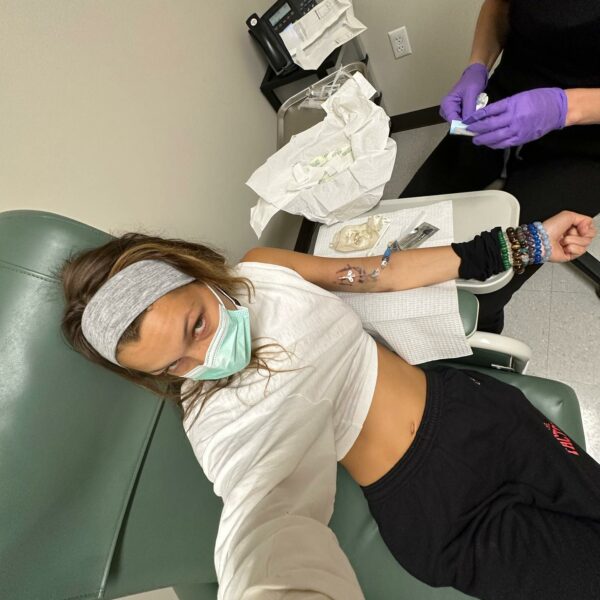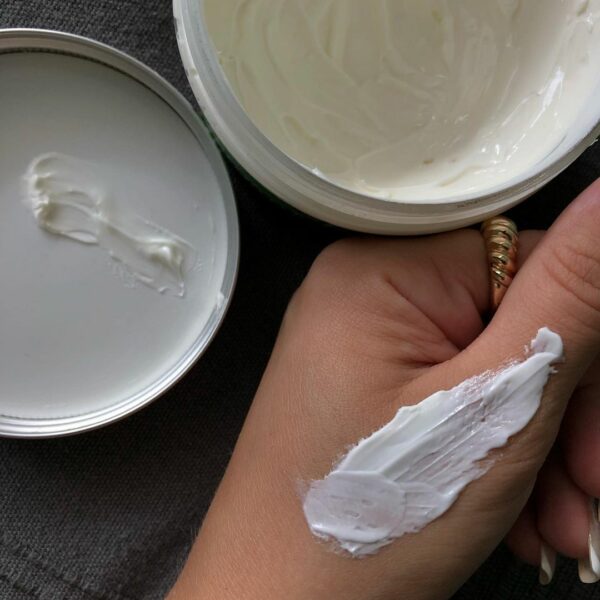Stress sweat feels a bit like betrayal. Like, it’s not enough that we’re anxious—we’ve also gotta get all damp and stinky?
Why tho?
“Sweating is your body’s way of cooling yourself down so you don’t overheat, whether you are exercising, spending time outdoors on a hot summer day, or in a stressful situation,” says Meghan Swidler, holistic nutrition health coach and author of From Within.
“It’s essentially your body’s natural way of finding homeostasis (balance!), which is pretty incredible when you think about it,” she explains.
That said, stress sweat is actually pretty different from “regular” sweat. Read on to find out how and get some tips to help curb stress sweat.
What causes stress sweat?
“When the body is in a state of real or perceived stress or anxiety, the sympathetic nervous system (‘fight or flight’ response) gets activated, which puts your body on high alert,” Swidler says. “Hormones released by the pituitary gland, including adrenaline and cortisol, flood the body, resulting in a surge in body temperature, tense muscles, increased heart rate, increased blood pressure, and yes—sweat!”
How is stress sweat different from other sweat?
“There is actually a chemical difference between sweating from heat or physical activity and sweating from stress,” Swidler says. “They’re also released from different glands.”
There are two types of glands that secrete sweat:
Eccrine: Located over most of the body but primarily on the forehead, palms, and soles of the feet. They secrete sweat that is mostly made up of water.
Apocrine: Located under the arms, around the groin, and on the scalp. They secrete a milkier, thicker sweat composed of fatty acids (lipids) and proteins.
Stress sweat comes from the apocrine glands.
Why does it smell so much worse than other sweat?
“Stress sweat smells worse than other types of sweat, and for good reason,” Swidler says. “From an evolutionary standpoint, having a strong, repulsive odor helps to fight off predators!”
“Initially,” she adds, “stress sweat is odorless. But because it doesn’t evaporate as quickly as regular sweat, bacteria that live on the skin have plenty of time to nosh on the lipids and proteins in stress sweat. Voila! The gross odor.”
What are some ways we can curb stress sweat?
“Not all stress is bad. Acute (short-term stress) can actually help with focus, motivation, and performance! Chronic stressors and stressful lifestyles can unfortunately lead to a continual, elevated output of cortisol and a long list of potentially harmful consequences to your health,” Swidler says.
“The only way to keep stress sweat from happening is to keep your stress levels in check,” she says.
Ofc, this is easier said than done.
“We don’t always have the power to avoid or remove certain stressors from our lives, but by shifting our mindset around specific daily stressors, we can choose a different perspective/thought and ultimately decide whether events are obstacles (happening to us) or opportunities for growth (happening for us),” Swidler says. “When you reframe the story, you can generate a new type of emotional response that is more positive in nature (and curbs stress sweat too!).
“Here are some tips (from my book) to help you stay calm when the daily stressors start to pile up:
1. Do meditation and/or breathwork. Don’t expect perfection or a completely clear mind. Instead, strive for mindfulness.
2. Be social, and spend time with positive, loving, and genuine friends and family.
3. Let go of toxic people who deplete you.
4. Put yourself first.
5. Move your body.
6. Set an intention for the day.
7. Set boundaries and say no more often.
8. Go for a walk outside.
9. Listen to music.
10. Do low-impact slow workouts like gentle yoga and Pilates.
11. Journal.
12. Eat your food slowly, mindfully, and intuitively.
Shop our calming collection:
Up next, be the first to know our weekly content and sign up for our Poosh newsletter.






































